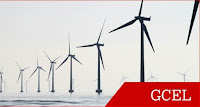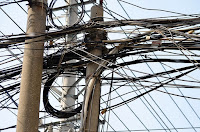In a series of blogs, Ceciel Nieuwenhout and Gijs Kreeft, both PhD researchers at the Groningen Centre of Energy Law, will expand on energy related topics which play a role in the campaign towards the upcoming Dutch parliament elections of March 15. See the first blog in this series for an introduction on the Dutch political landscape. As the Netherlands are, to a large extend, located below sea-level, one would expect that climate change is taken very serious here. However, unlike other low-lying coastal areas, in the Netherlands the effects of climate change are seen as ‘manageable’. [1] Perhaps this is why climate change and the energy transition are not so much of an issue during the current election debates. This blog post will elaborate upon Dutch obligations with regard to climate action and the energy transition, what political and legislative initiatives currently exist, what the parties’ stances are for the coming elections and why climate change is not more prominent

































